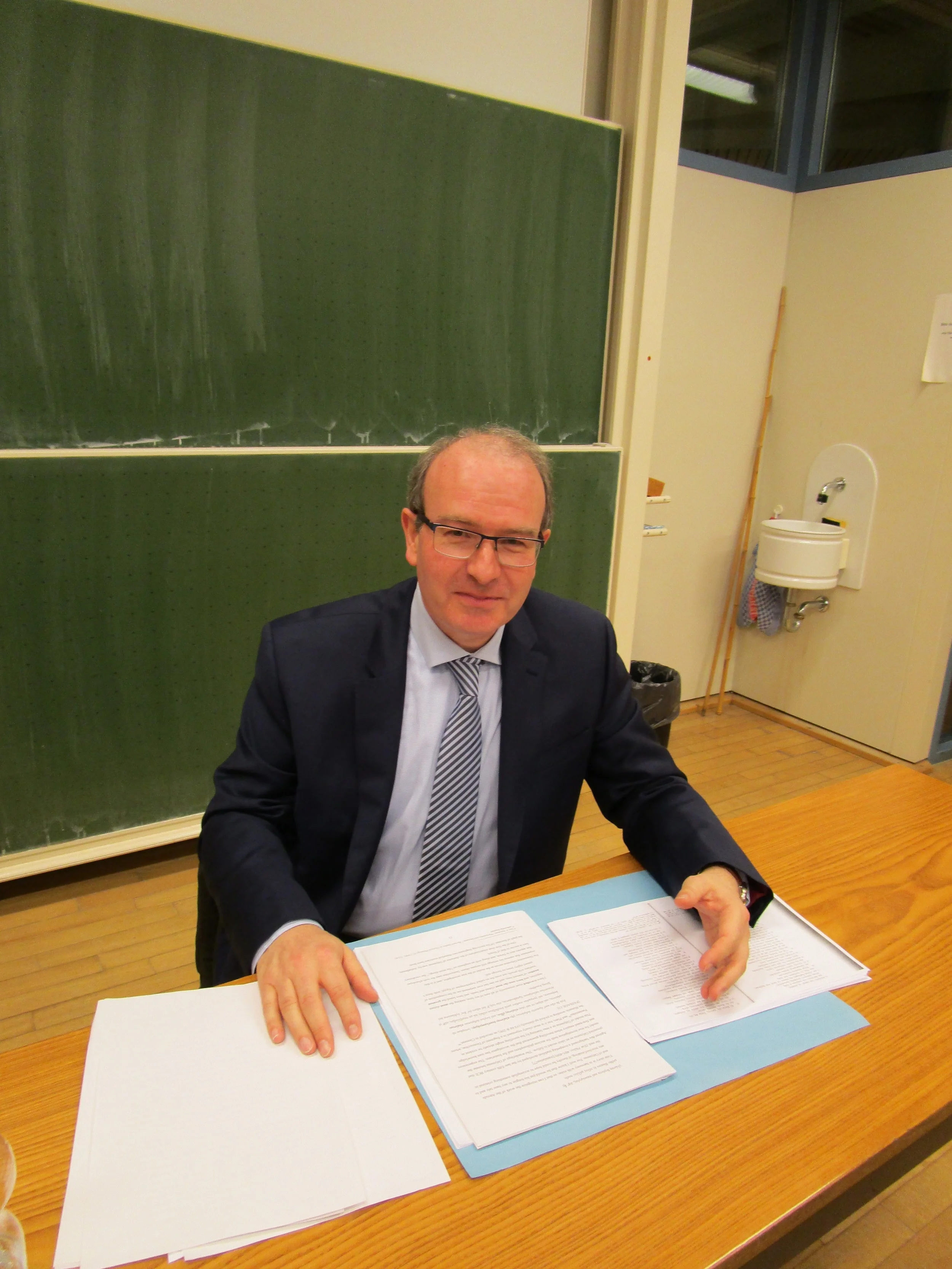News from Tübingen
Birgit Hallmann
Jan./Feb., 2018
by Beth Langstaff
Here is Tübingen, the winter semester is almost at an end. In the New Testament Colloquium, we have had a very good series of speakers and papers. In December, Prof James Aitken from the University of Cambridge, on a return visit to Tübingen and to the Colloquium, read a paper on "Rewriting Homer in the Greek version of Sirach". Among other topics, the discussion took up the intriguing question: to what extent does a translator also function as an author? The book of Sirach, also known as Ecclesiasticus, is part of the Apocrypha; in content, it is similar to the book of Proverbs, and it was known and used in early Christian circles.
Prof. Aitken

